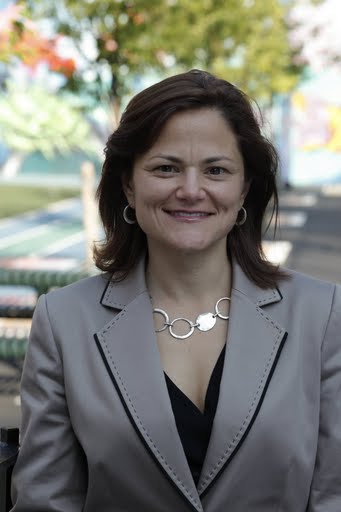The populist groundswell that swept Bill de Blasio to victory in the mayoral election is reshaping the City Council as well, with a cadre of fiercely liberal council members demanding a voice in choosing that body’s next speaker.
The Council’s Progressive Caucus, which formed in 2010 in opposition to what it viewed as the elitist policies of Mayor Michael R. Bloomberg, saw its numbers nearly double in the recent elections. Twenty members of the caucus on Sunday met and committed to voting as a bloc in the election for speaker. The current speaker, Christine C. Quinn, is leaving the Council after having lost the Democratic primary for mayor, and her successor will be chosen in January by the 51 council members.
Starting in January, the Council will include 48 Democrats and three Republicans, so the battle for speaker will be among factions of Democrats.
Kenneth Sherrill, a professor emeritus of political science at Hunter College, said the rise of the Progressive Caucus could portend the emergence of a new two-party system in New York City — not Democrats and Republicans, but centrist Democrats and more liberal Democrats.
“The Republican Party for all intents and purposes doesn’t exist in New York City,” he said. “If the Democrats don’t have competition from the right, maybe they should have competition from the left.”
Brad Lander, a Democrat from Brooklyn and the co-chairman of the progressive caucus, said that the 20 caucus members — some of them already serving on the Council, and some who will be serving for the first time — made the commitment to stick together at a caucus retreat at the Bronx Zoo. They met in the executive dining room, he said, from which they had a view of the zoo’s peacocks perambulating in the drizzle.
“We’re resolutely committed to building a City Council that fights for a more just and equal New York City, functions more democratically, and includes progressives strongly in its leadership,” Mr. Lander said.
The caucus’s effort to control a bloc of votes in the race for speaker is a departure from the past, when the speakership was effectively decided by county Democratic Party chairmen. Now the caucus is seeking to ally with one or more of the county delegations to put together enough votes to elect a speaker. The caucus asked a labor official, Alison Hirsh, the political director of 32BJ, the union of janitors and doormen, to negotiate with the county chairmen, other council members and speaker candidates on its behalf.
The co-chairwoman of the Progressive Caucus, Melissa Mark-Viverito, from Manhattan, is a front-runner in the race, but the caucus has so far not aligned itself with her or any other candidate. The other candidates include Daniel R. Garodnick of Manhattan, Mark Weprin of Queens, and Annabel Palma and James Vacca of the Bronx.
Instead of endorsing a candidate, the caucus is trying to win support for changes that would limit the power of the speaker’s office. Ms. Quinn used her power to decide which legislation was brought up for a vote and how much money individual council members were allowed to distribute in the form of discretionary spending.
The Progressive Caucus wants an independent bill-drafting office to assist council members with legislation, and a formula to determine the amount of money council members can distribute to groups in their districts.
The caucus is also promoting legislation it believes would help address income inequality, including the expansion of paid sick leave and the creation of a more progressive tax system.
The caucus’s proposals overlap substantially with the platform on which Mr. de Blasio was elected, but there are some exceptions. For example, the caucus wants to allow noncitizen permanent residents to vote in municipal elections, which Mr. de Blasio has said he does not support.
Susan Lerner, the executive director of Common Cause New York, said the caucus’s role in the race for speaker would diminish the power of the county chairmen. Ms. Lerner worked with members of the caucus on drafting their proposals.
“The members of the City Council are elected by voters, and they are ultimately responsible to their constituencies,” she said. “This, I think, changes the dynamic of the speaker selection process in a way that I believe is positive and benefits the better democratic functioning of the Council.”
